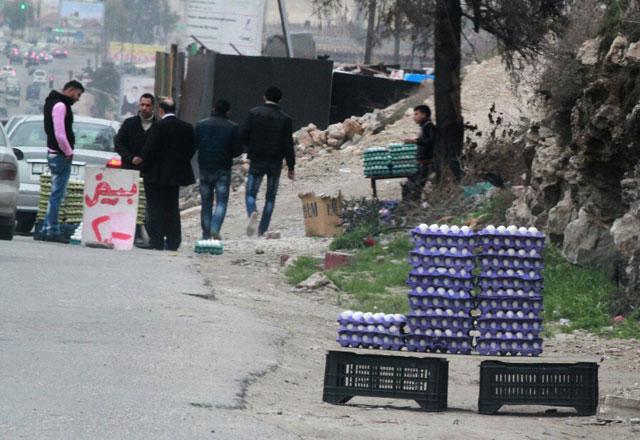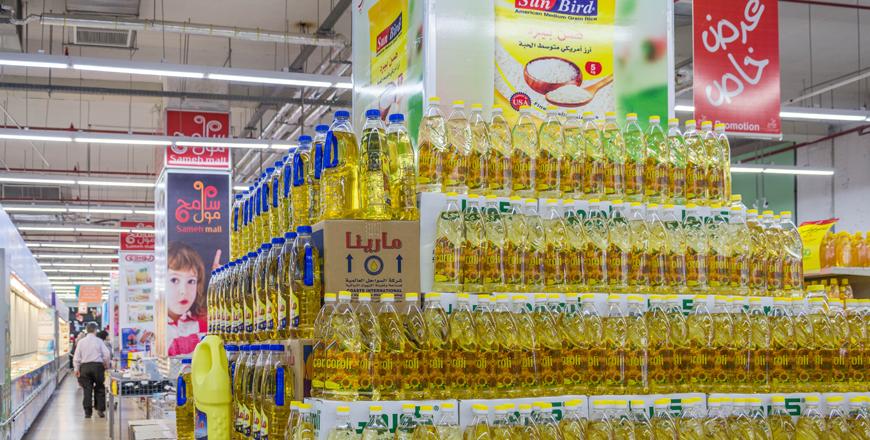You are here
Traders call for importing table eggs as poultry producers say move will harm local production
By Dana Al Emam - Jan 27,2015 - Last updated at Jan 27,2015

AMMAN — The Foodstuff Traders Association (FTA) on Tuesday called for opening the local market to imported table eggs to overcome the price hike, but poultry producers said the step would harm local production.
In phone interviews with The Jordan Times, representatives of the two sides asserted that low production rates usually accompany cold weather, especially the recent polar front that the country witnessed.
But each party seeks a different solution to the issue.
FTA Director Zuhair Harb said "providing table eggs to consumers at reasonable prices is for the greater good that all stakeholders should work to achieve."
Noting that the cost of importing and transporting the staple food item is "much cheaper" than the current price of locally produced eggs, Harb suggested importing them from Romania, Poland and Bulgaria, as well as Saudi Arabia and the United Arab Emirates.
"The association has many times asked the Agriculture Ministry to issue temporary import permits during winter, but the demands were rejected to protect local production," he said.
Harb said the price of an egg carton was around JD2.6 to JD2.75 before the snowstorm, while it currently costs up to JD3.75, but Abdul Shakour Jamjoum, president of the Jordanian Poultry Producers Union, disagreed with these figures.
Jamjoum said egg cartons are currently available in the market for JD2.5, while the price drops to less than JD2 in warmer seasons.
Describing local egg production as "sufficient", Jamjoum said it amounted to 87 million eggs in January, while it is expected to reach 90 million in February and 100 million in March.
He added that Jordan recently exported some 1.5 million table eggs to Saudi Arabia and Oman, with the potential to increase this number during summer.
Jamjoum explained that importing eggs affects their quality, as transporting them takes 20 to 30 days, which is long enough for eggs to go bad, citing a similar incident two years ago.
The union leader said increased demand for eggs during the recent blizzard contributed to the current price hike, calling on citizens to support local products.
Viewing the issue from another angle, Harb pointed out that banning imports violates international trade agreements that Jordan has signed, adding that free trade agreements do not allow governments to intervene to limit competition in the market.
Related Articles
AMMAN — Jordanians started preparing for Ramadan this week, causing a "remarkable" increase in demand for poultry products and grocery items
The Agriculture Ministry and food traders on Saturday disagreed over recent restrictions imposed on imported frozen poultry.
Differences among members of the Foodstuff Traders Association’s (FTA) administrative body have resulted in its dissolution, an FTA official said Monday.

















